You might be asking yourself, is there such a thing as normal foundation cracks? What you really should be asking, is if foundation cracks are dangerous. By the end of this article, you’ll know the difference between “normal” non-structural cracks, and “dangerous” structural cracks.
Is There Such A Thing As Normal Foundation Cracks?
There is no such thing as “normal” foundation cracks. All cracks are an indication something went wrong. While not “normal,” small cracks are considered non-structural because they don’t pose a threat to the structural integrity of your home. These cracks still allow water to seep into your foundation, so we still recommend fixing them.
What Causes Non-structural Foundation Cracks?
Non-structural foundation cracks are caused by concrete shrinkage. Shrinkage is when a poured foundation dries too fast, causing the concrete to shrink and develop thin hairline cracks.
Non-structural cracks can also form from:
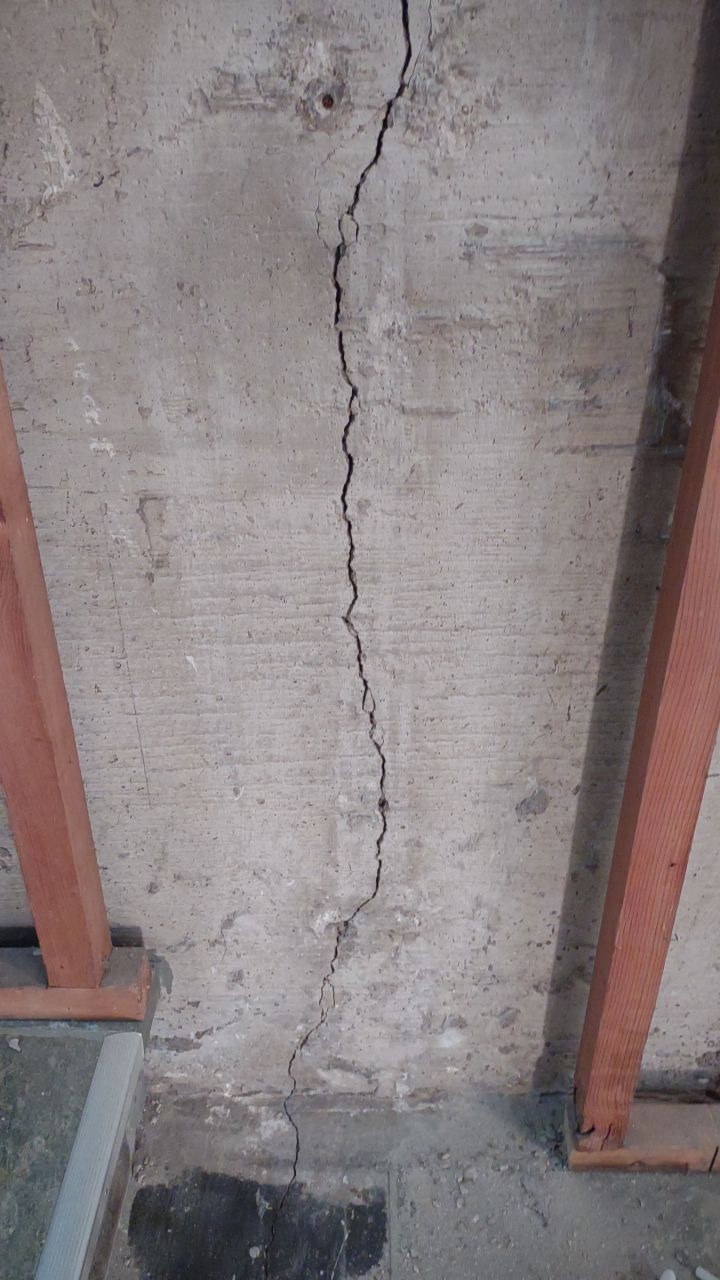
Thermal movement – This is uncommon, but concrete and brick foundations can expand and contract as the weather changes. The masonry will expand during the hotter seasons and shrink during the colder seasons. This cycle of expanding and shrinking will cause your walls to crack.
Aging – Over time, cracks can appear simply due to aging.
Types Of Non-structural Foundation Cracks
Below are the most common normal foundation cracks.
Hairline cracks – Hairline cracks, also called cosmetic cracks, usually form within the first year of a newly-built home. You might find them near windows, corners of your walls, floors, or at longer sections of your foundation. As long as they stay under 2 millimeters, they shouldn’t be a problem.
Vertical cracks – Vertical cracks are considered “non-structural” because they are not as severe as other wall cracks, such as diagonal and horizontal. Vertical cracks are commonly found in poured concrete foundations.
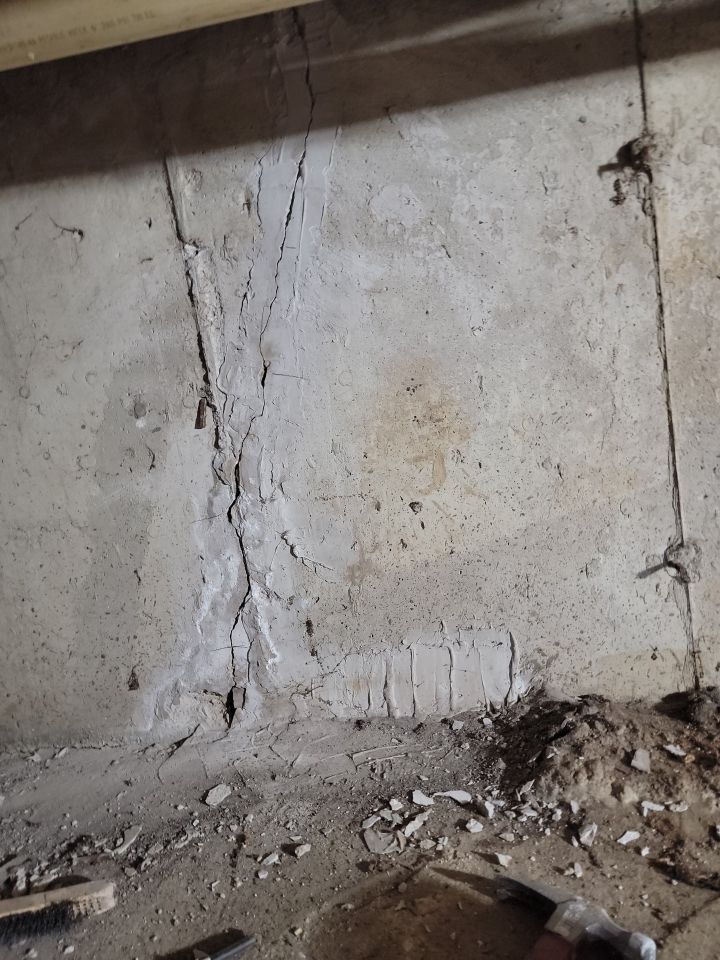
How To Repair Non-structural Foundation Cracks
Even though normal foundation cracks don’t pose a structural issue, they can still allow water to seep into your home. The best way to repair a non-structural crack is by patching and filling in the crack.
- First, a surface patch is created using an epoxy bonder.
- Then, the crack is injected with a 2-part epoxy, waterproofing and reinforcing the foundation.
What Causes Structural Foundation Cracks?
Structural cracks are usually caused by differential settlement. When your home is first built, your foundation will naturally settle in a uniform manner. This is called uniform settlement.
Differential settlement is when sections of your home settle at different rates. You’ll notice sloping floors, bowing walls, sticking windows/doors, and cracked foundation walls. Learn more about differential settlement and how to combat it.
Structural cracks also result from:
Hydrostatic pressure – Hydrostatic pressure is when water soaks into the soil around your foundation. The increase of volume exerts pressure against your walls, forming cracks.
Frost-heave – If the soil around your foundation freezes, it can cause the dirt to rise. When the soil thaws, the dirt settles back down. This up-and-down movement can create wall cracks.
Types Of Structural Foundation Cracks
Look out for these three types of abnormal structural foundation cracks.
Horizontal cracks – Horizontal foundation cracks are very severe and indicate serious structural problems. These types of cracks are caused by bowing walls, which are caused by hydrostatic pressure, frost-heaving, excessive backfilling (too much dirt was placed around your foundation), and the impact of heavy equipment. You will notice horizontal cracks mainly in concrete and block foundations.
Diagonal cracks – Compared to horizontal cracks, diagonal cracks are not as severe. But, if left unchecked, they can get worse. These types of cracks are usually caused by differential settlement. Look out for diagonal cracks at the corners of your walls on both sides.
Stair-step cracks – Stair-step cracks are the most dangerous out of all cracks. These alarming cracks are usually in the brick facia above the foundation. Stair-step cracks are usually caused by differential settlement and are commonly found in block or brick foundations.
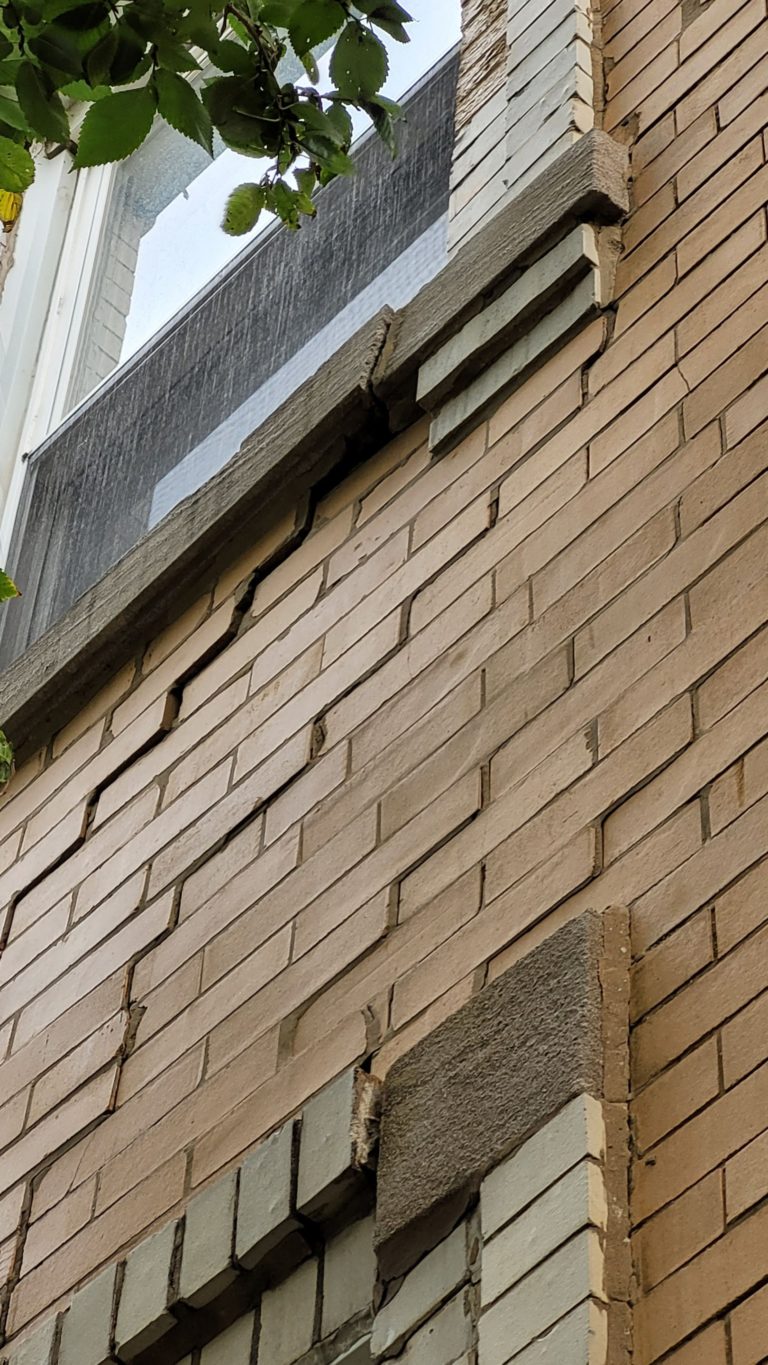
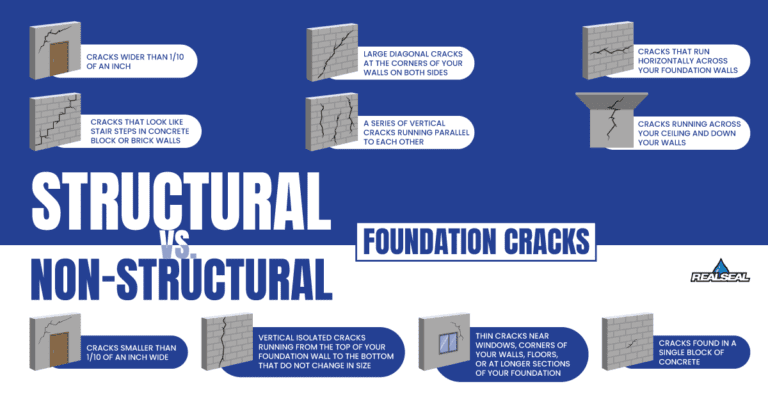
How To Repair Structural Foundation Cracks
If cracks are severe and your foundation’s structural integrity begins to fail, you will have to implement stronger solutions. Stronger solutions include underpinning, carbon fiber repair, and wall anchors. Learn if all foundation cracks can be injected.
How Much Does It Cost To Fix Foundation Cracks?
Based on the average single-family home, repairing a foundation crack using an epoxy injection can cost $500 to $900. Call a professional foundation repair company for the best estimate.
How To Prevent Foundation Cracks
Foundation cracks usually occur because there is too much water draining toward your foundation. The excess water is exerting pressure against your walls, causing your walls to crack. The best way to prevent foundation cracks is to ensure you have proper drainage.
Proper drainage includes installing an interior or exterior drain tile, adding extensions to your downspouts, adding a french drain, or grading your property away from your home. Read more about foundation drainage systems.
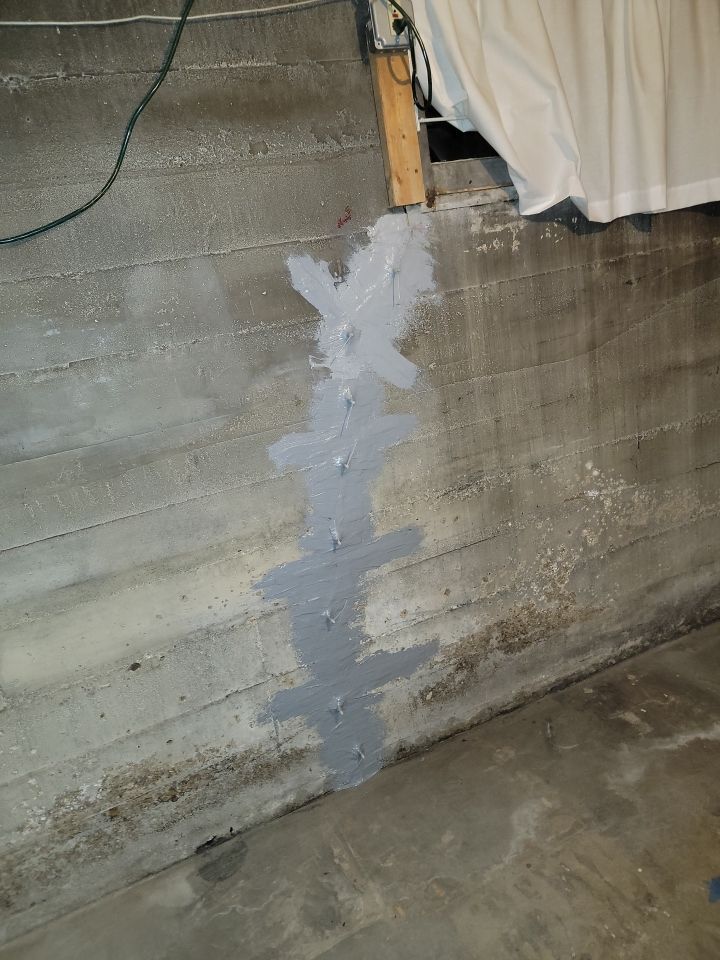
The Real Seal
If you live in the Greater Chicago area and need foundation crack repair, who do you call? There are so many options out there. Who can you trust to provide quality service? You need the real deal, and you need The Real Seal. Call us today, and we’ll get you started with an in-depth inspection, free repair estimate, and a list of our finest solutions. We also provide basement waterproofing, crawl space encapsulation, crawl space repair, concrete leveling, and more.ellus, luctus nec ullamcorper mattis, pulvinar dapibus leo.
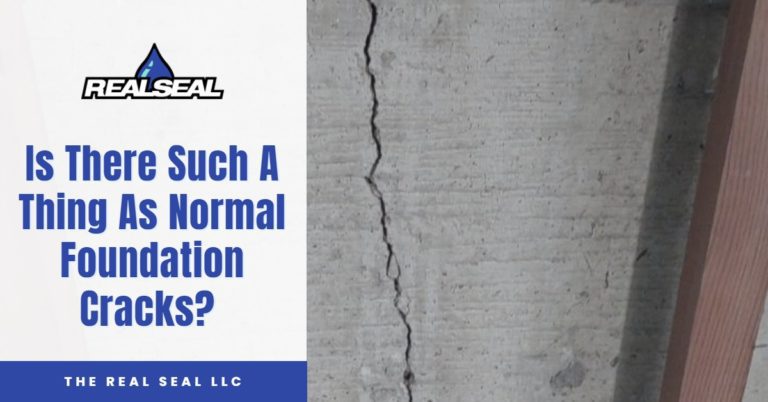
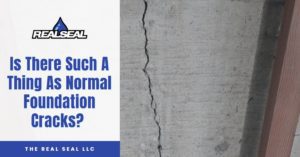
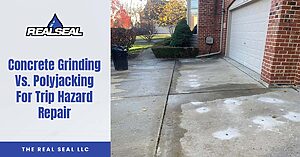
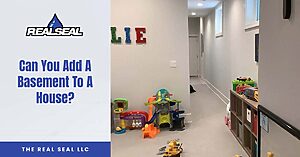
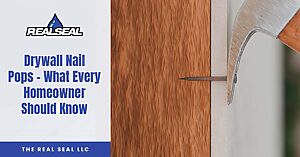
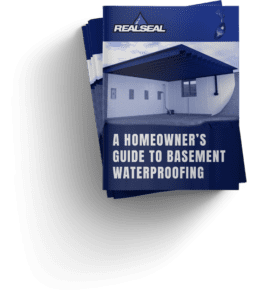

2 Responses
Valerie ramos
Need a estimate for my basement
872 901 1570
Thanks Valerie! We’ll be reaching out!